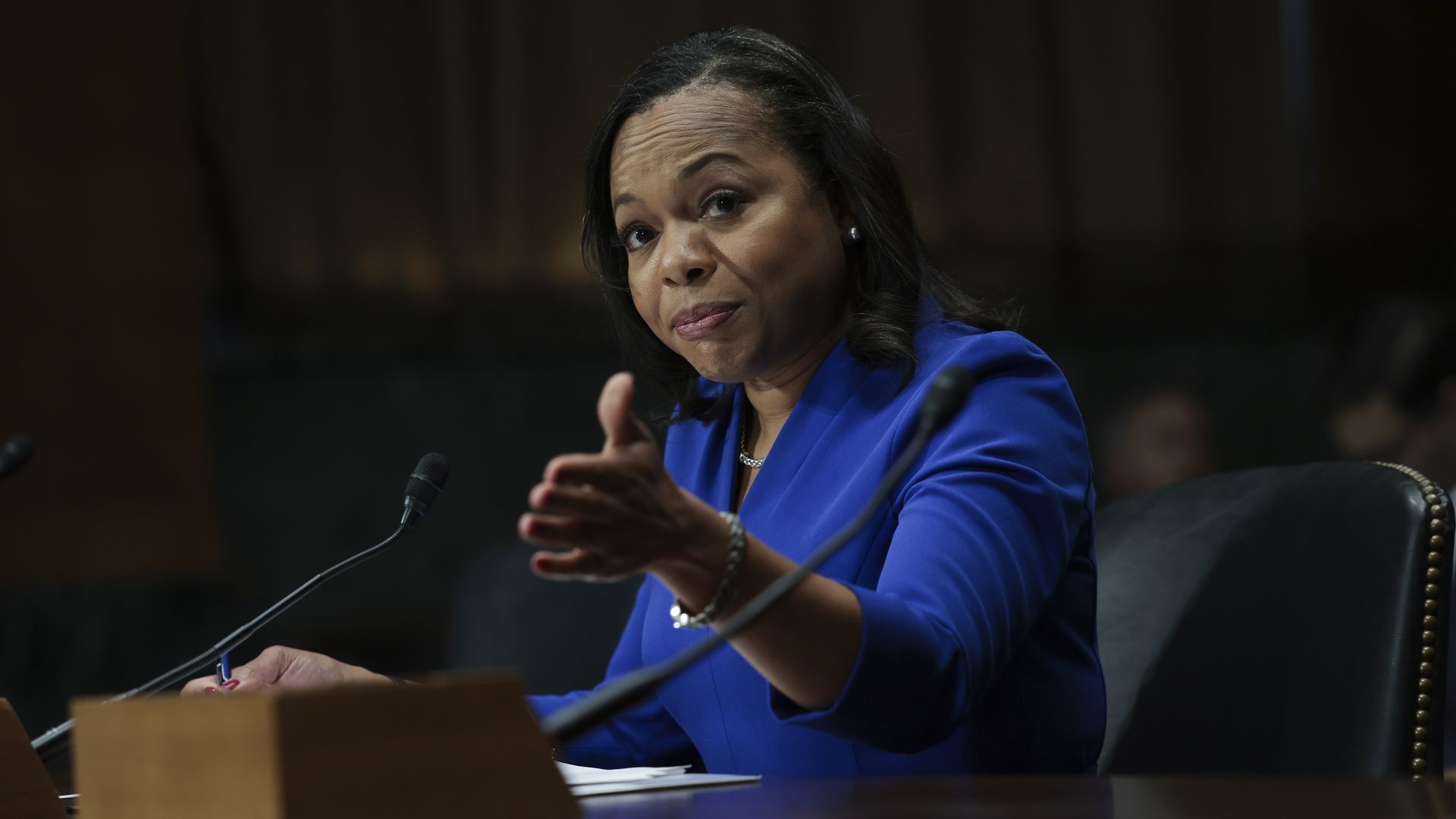More law enforcement agencies are opting not to join the FBI’s annual hate crimes report

Assistant Attorney General Kristen Clarke testifies before the Senate Judiciary Committee. Photo: Kevin Dietsch/Getty Images
A rising number of law enforcement agencies are opting not to share statistics about hate crimes with the FBI — just as hate crimes are skyrocketing, according to U.S. Justice Department numbers.
The big picture: The decline in reporting hurts efforts to accurately document violence against Asian Americans, Black Americans, and LGBTQ+ people, advocates and DOJ officials say.
Details: The number of police agencies participating in the FBI’shate crimes report declined in 2020 — the third straight year of decreases.About 88% of cities don't report hate crimes data.
- More than 12,000 law enforcement agencies reported zero hate crimes FBI numbers showed. The list includes police departments in Miami, Little Rock, Arkansas, and Huntsville, Alabama.
- Just a handful of cities and towns in states like Alabama, Arkansas, and Florida bothered to report hate crimes in 2020, an analysis of data by Axios found.
By the numbers: In 2020, the number of hate crimes reported nationwide spiked to the highest level in nearly two decades.
- More than 60% of reported hate crimes were motivated by race and ethnicity and, of those, more than half targeted Black Americans, Assistant Attorney General Kristen Clarke told the Senate Judiciary Committee last week.
- The FBI hasn't reported its statistics yet for 2021, but a new study found that reports of hate crimes skyrocketed again last year in more than a dozen of America’s largest cities, with a record number of Asian Americans saying they were targeted,
- The unpublished study by the Center for the Study of Hate and Extremism at California State University, San Bernardino found that hate crimes surged 46% from the previous year across 14 major metro areas.
What they're saying: "This lack of accurate hate crimes data not only makes it harder for law enforcement to address and prevent hate crimes, but also can cause individuals and communities victimized by acts of hate to believe that law enforcement agencies are not responding to their experiences," Clarke testified.
- "Accurate and complete data reporting is needed to ensure that resources deployed match the most pressing needs in our communities."
The other side: Submitting hate crime data is voluntary, and some cities, including Los Angeles and New York, have improved their reporting, Brian Levin, the director of the Center for the Study of Hate and Extremism, California State University, told Axios.
Yes, but: The disparity in reporting makes it appear that Los Angeles is a city filled with hate crimes while Miami is safe from hate, Levin said: "Go ask a gay person in Miami if they think that's true."
- Levin said Miami police need to start participating regularly and Congress needs to consider legislation that would tie federal grants to hate crimes reporting.
- The Miami Police Department did not return emails or phone messages.
- Gene Voegtlin, policy and governance director at the International Association of Chiefs of Police, said the group did not have anyone to comment for this story.
Don't forget: The most diverse set of attorneys general in the nation's history are pushing a campaign against hate crimes while they face hateful rhetoric and threats themselves.
- Washington, D.C. Attorney General Karl Racine, a Haitian immigrant, is urging all attorneys general to use their influence to draw attention to the spike in hate crimes and advocate for changing laws locally and nationally.
Source: Read Full Article

